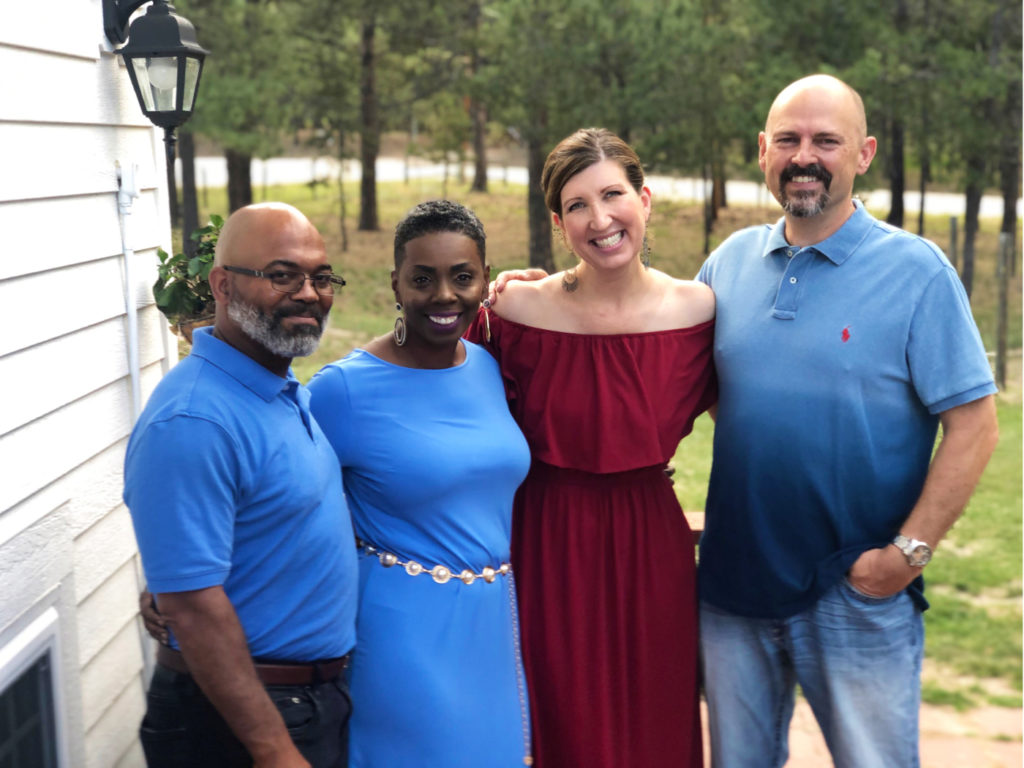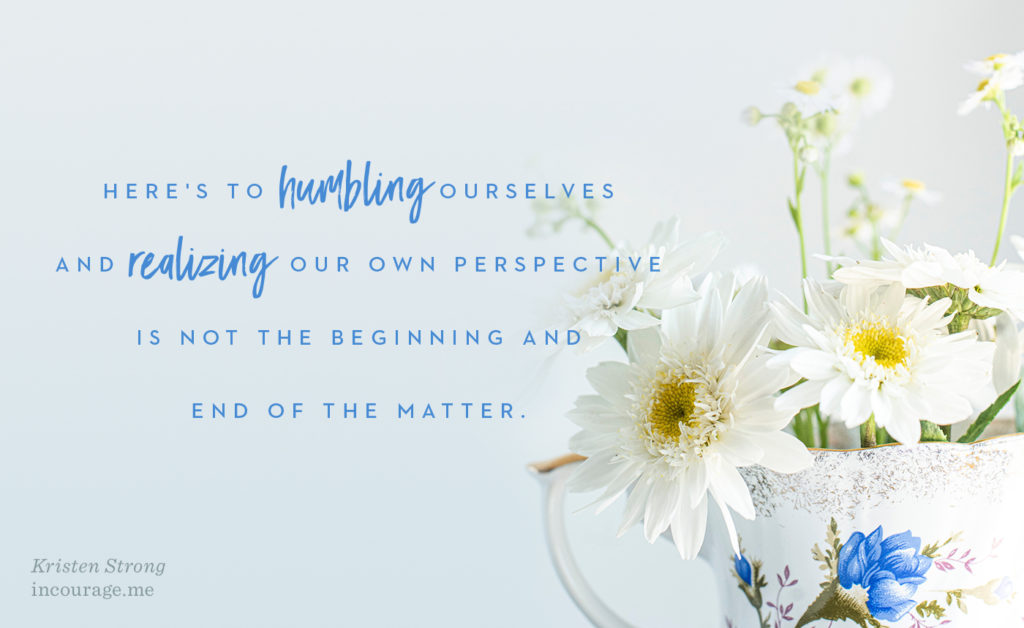
I run around our dining-living-kitchen room like I do before company comes over, making sure there isn’t too much dog hair on the sofa or too little water in the garage sale pitcher with sunflowers. I peek into the oven and see the peach crisp is finished baking. I turn off the oven, but I leave the dessert inside.
I don’t want to serve lukewarm peach crisp after dinner. And like any self-respecting Enneagram two, I don’t want to serve lukewarm hospitality either.
As I assemble the simple, six-ingredient salad (arugula, parmesan, salt and pepper with a splash of olive oil and lemon juice), our friends, Salena and Sheldon, walk up the front steps. David opens the door for them, and Salena hands me white and yellow daisies, sunshine wrapped in petals and stems.
Salena herself is sunshine wrapped in dark-hued skin.
David serves up drinks before we pray, and then we serve ourselves arugula salad, sourdough bread, and Bolognese sauceand pasta (or as I like to call it, fancy spaghetti).
It isn’t fancy, but it is tasty.
We sit ‘round our table with the three Strong kids, and as is the case with us, we’re barely into dinner before the conversation turns to Serious Current Events. That kicks off three hours of conversation that deep dives into the middle of so many relevant questions:
What’s the best way to move forward through COVID?
How do we reconcile the issues we care about with the conduct of those holding power?
Why is empathy so hard to come by these days?
While we’ve known each other for over five years now, this conversation is similar to the first one Salena and I had back in 2015.
At that time, while speaking at a function for US Army and Air Force spouses in Colorado Springs, I noticed (and appreciated!) Salena’s kind, positive engagement with my talk on change. After I finished yammering and people were milling about, I introduced myself to her and was immediately put at ease with her effervescent personality. We did the small-talk thing for a little while, and then I basically cannon-balled into the conversational pool by asking her a question that set the tone for our relationship today. At that time, our country’s national headlines focused on altercations between police officers and young black men, much like today. Of course, I had my own thoughts on the subject, but I knew my own perspective couldn’t be the beginning and end of the conversation. Since Salena is a Black woman, I really wanted to know her perspective.
Twisting my hands, I asked, “Salena, I have a personal question for you, and if you’re not comfortable answering, then I totally understand.”
She told me to go right ahead.
“Could you help me understand what’s going on concerning the headlines and the racial division in our country?” Salena answered frankly within the context of her story, both her history and her present life. For two hours, we talked about that, our shared history as military spouses, and about raising sons.
While I have other Black friends I’ve known longer, Salena was the first person I felt compelled to “go there” with — to cross the awkward bridge toward a potentially thorny conversation. We didn’t solve any big issues that night, but after listening to her, I moved closer to understanding the bigger picture of why things are the way they are.
The driving force behind all our subsequent conversations has been the same: to peel back yet another layer of our stories as we listen to one another. We talk about uncomfortable subjects, but it’s not uncomfortable to do so because we each come to the conversation with the goal of understanding the other’s perspective — not airing our own Big Important Opinions.

These days, I’m working on humbly listening more and talking less — period. Salena and Sheldon continue to be gracious friends whom God uses to expose blind spots in the hearts of my family and me.
Back at our house around the decades-old, walnut-wood table, I pass out bowls of maple peach crisp with whipped cream to each person. As Salena takes hers, she drops a good word about conversations in general: “It seems that sometimes, the church is building platforms when they should be building tables.”
We all nod, and I tell her I would be writing that one down. YES to tables over platforms.
YES to talking with rather than talking at.

Leave a Reply